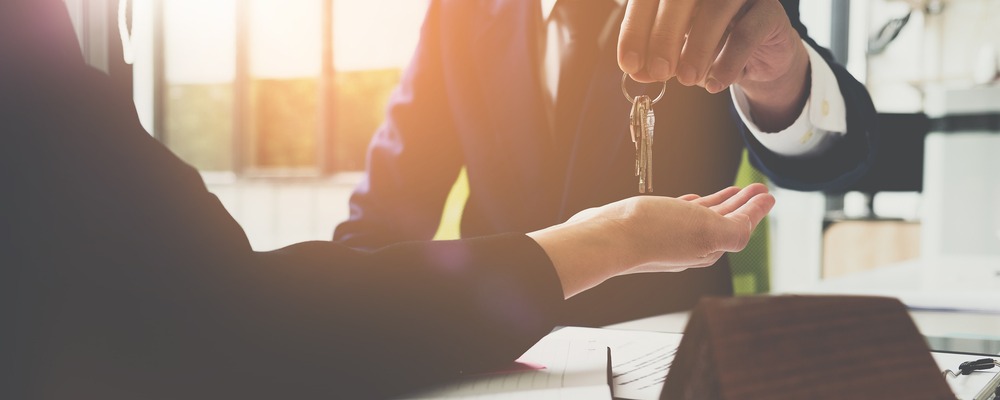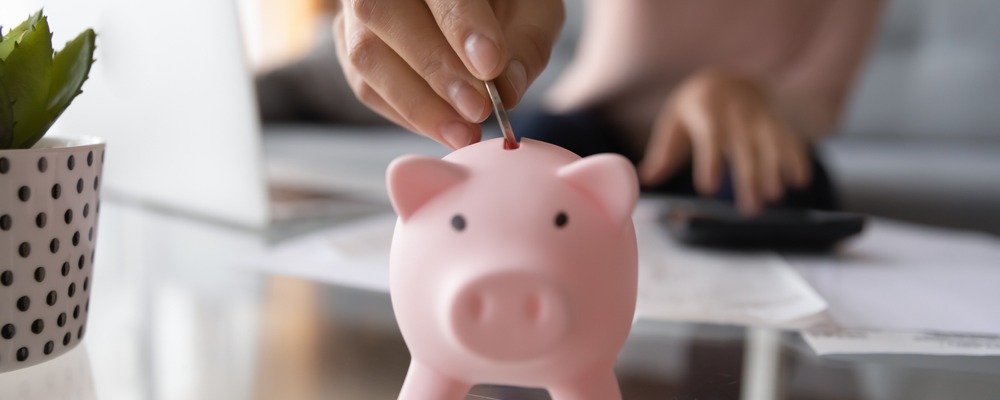
Key Takeaways
- Work out your deposit goal: Determine how much you need to save for your deposit based on your target property price. Consider 5% to 10% of the property value as your savings target.
- Reduce everyday spending: Small changes can add up over time. For instance, making your own lunch instead of buying a shop-bought sandwich can save you money.
- Get your bills under control: Tidy up your finances by paying off debts and renegotiating bills. This can help boost how much you can borrow for a mortgage
- Think about buying with someone else: Consider purchasing a property with a partner, relative, or friend. Sharing the financial burden can make it easier to save for a deposit.
- Take advantage of home buying schemes: Explore options like Deposit Unlock, Deposit Boost, and Own New - Rate Reducer

1. Work out how much you'll need to save for your deposit
First-time buyers generally need to have a deposit of somewhere between 5% and 20% of the price of the property they’re looking to buy. Usually, a bigger deposit will mean buyers have to make smaller monthly mortgage repayments – though the difference will vary greatly based on current interest rates.
The price you’ll pay for a new home differs across the country, with houses in the North East generally being much more affordable than properties in London and its surrounding areas.
Average first-time buyer deposits across the UK
| Region | Averagefirst-time buyer deposit |
| East Midlands | £42,451 |
| East of England | £60,169 |
| London | £125,378 |
| North East | £30,198 |
| Northern Ireland | £33,199 |
| North West | £37,483 |
| Scotland | £41,442 |
| South East | £68,749 |
| South West | £55,708 |
| Wales | £36,825 |
| West Midlands | £42,339 |
| Yorkshire & The Humber | £37,062 |
Saving up for a deposit for a new home can feel a bit daunting, but there is help available. We have a range of schemes to help you make your move into a new home. Available to both first-time buyers and existing homeowners, Deposit Unlock could help you buy with just a 5% deposit. There’s also Deposit Boost. As the name suggests, if you have a 10% deposit, we could top it up by a further 5% of the purchase price – which could help you unlock more affordable mortgage payments.
Working out the cost of a mortgage can be tricky. The Government-backed MoneyHelper website has a useful mortgage calculator. It’s also a good idea to speak to a Mortgage Adviser about the size and type of mortgage you can realistically afford.
Remember, when buying a home you’ll also need to save for more than just a deposit. To avoid any nasty surprises down the line, don’t forget to factor in things like:
- Stamp Duty
- Valuation fees
- Mortgage arrangement fees
- Search, survey and Land Registry fees
- Legal fees
- Buildings and contents insurance
- Council Tax
- Money transfer fees
- Removal costs

2. Could you reduce your spending?
With inflation on the rise and the ‘cost of living crisis’ affecting us all, reducing your outgoings might not seem easy. However, it can really help you save up the money you need to buy a house – particularly when it comes to saving a lump sum for your deposit.
You may find you can make savings in unexpected places:
- If you’re renting, could you move somewhere cheaper or spend time back home with family?
- If you own your current property, could you get a lodger in?
- With energy and utility bills going up, could you reduce your energy use?
- How about downgrading your phone or broadband packages?
- Are you paying for subscriptions, memberships or services that you don’t really use?
- Could you cancel or downgrade your gym membership and exercise in the local park?
Budgeting is key when saving for a mortgage deposit. Cutting down on your everyday spending might be hard, but think carefully about spending money on non-essential things. If you eat out or get a lot of takeaways, travel by taxi, or regularly grab a coffee (and a pastry) the costs can soon add up.
It's also useful to sort your spending into categories to spot any areas where you may be able to save money. Various different banking and financial apps can make this a simple process – think about dividing your savings into different pots or setting clear savings goals.
When it comes to finding a cheaper energy or utility supplier, websites like MoneySuperMarket, MoneySavingExpert and USwitch are good places to start. You could also contact your current provider and check that you’re on the best value package.
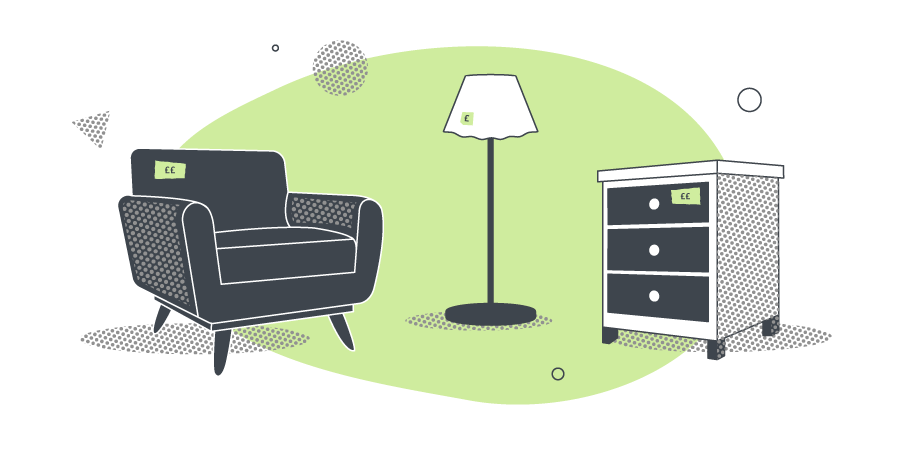
3. Be resourceful and try to boost your income
A bit like looking at your spending, you might be surprised to discover that you could make more of what’s already at your disposal. Saving for a deposit for a new home won’t happen overnight, but there may be straightforward ways to add to your total.- Got a lot of stuff? Have a bulk clear-out and sell unwanted items on sites such as eBay, Gumtree, Depop or Vinted.
- Maximise any reward or loyalty point schemes you’re signed up to
- Cash in any unused gift cards you’ve been waiting to use
- Got a hidden talent? Freelance and share your skill or set up an Etsy shop
Some financial products and accounts can help boost your savings too.
Cashback credit card – earn a percentage of what you spend as a credit on your bill. Good for everyday spending, but make sure you pay off the balance in full each month to avoid paying extra interest.
Savings account – earn interest on any money you put away. Some accounts will offer you a better rate, but only if you agree to keep your money locked in for a set period of time. If you’re looking to buy a home soon, you might need to get your money out quickly, so choose an account with instant access.
Individual Savings Account (ISA) – you can invest up to £20,000 into an ISA each year and get tax-free interest on the money you’ve saved.
A Lifetime ISA is particularly attractive to first time buyers. As long as you make your first investment before you reach the age of 40, you can then put in up to £4,000 a year until you’re 50. The Government will add a 25% bonus each year (up to a maximum of £1,000) and you can withdraw the money without any charge to help you buy your first home.
There are many other types of ISA available, so shop around and maybe talk to a Financial Adviser to see which one is right for you.
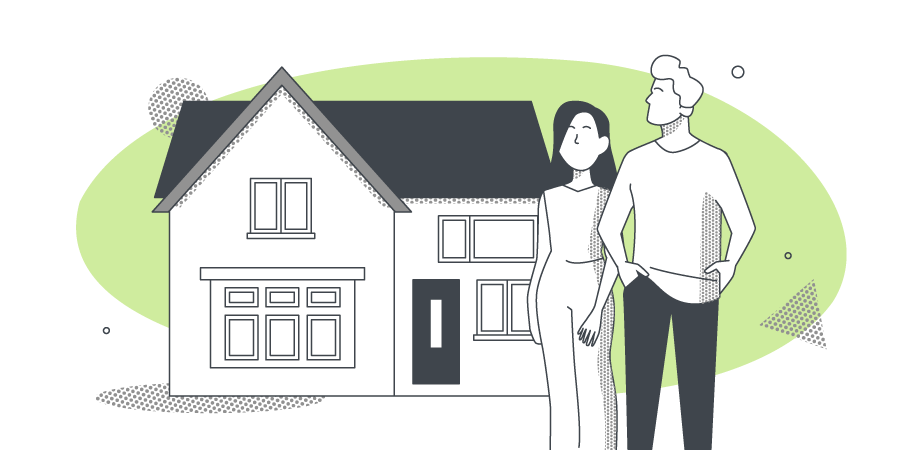
4. Think about buying with someone else
Consider buying with a partner, relative or friend, as sharing the load can make it easier to save for a deposit. Two people carefully budgeting, boosting incomes and working towards a savings goal will naturally be able to save more than one.
However, there are risks involved. Buying a house is a big decision, so it’s important to think carefully about starting the journey with another person – even if you’re just beginning to save for the mortgage deposit. It’s wise to talk things over with a legal adviser to make sure everyone knows where they stand.
5. Take advantage of home buying schemes
There’s no escaping the fact that pulling the money together to buy a home can be a challenge. Which is why there are schemes designed to help reduce the amount you need to save. Two of our most popular schemes are:
Deposit Unlock
Exclusively available on selected new-build homes, it enables first time buyers and existing homeowners to buy with just a 5% deposit and a 95% mortgage. It also gives people access to competitively priced mortgage products up to £750,000.
Deposit Boost
If you have a 10% deposit, it means you could increase it by an additional 5% of the sale price – giving you 15% deposit in total. That means you could borrow less from a lender and maybe secure a more competitive mortgage rate.
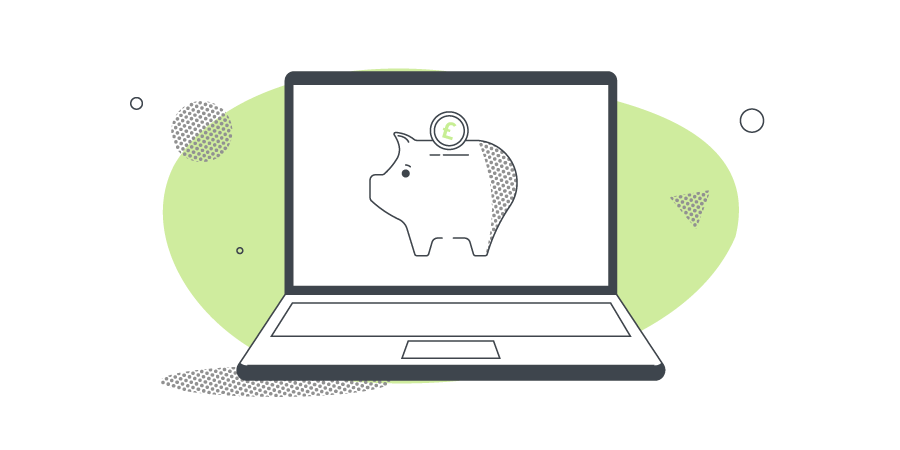
6. Frequently Asked Questions about saving for a mortgage deposit
Can you save for a house while renting?
Yes. While paying a large amount of rent every month will make it harder to save a substantial portion of your income towards a mortgage deposit, there are other ways to reach your savings goal. Consider cutting back on your spending where possible, and explore other ways to boost your income.
Can you get a mortgage without a deposit?
The vast majority of mortgage products require a deposit – usually between 5% and 20% of the property value. However, 0% mortgages are occasionally available, and may be right for you. Speak to a financial adviser to discuss the various mortgage products available to you right now.
How long does it take to save for a house?
The time it takes to save for your deposit will depend on lots of factors – for instance, the total price of the property you’re buying, how much you’re able to save each month and how big a deposit you intend to pay. Use our calculator above to get a rough idea of how long it might take you to save for a house deposit.
